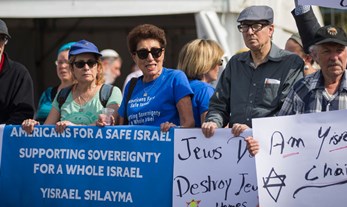


Dr. Shuki Friedman: 'New Kashrut Model Must Put an End to Chief Rabbinate's Monopoly'
Dr. Shuki Friedman responds to the Supreme Court discussion Tuesday on the Chief Rabbinate’s monopoly on kosher certification.
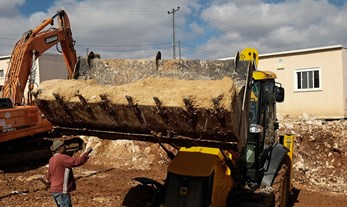
50% of Jewish public Hesitant to Expand Settlement Construction, Even with Trump at Helm
In addition to questions about building in or annexing parts of Judea and Samaria, the Peace Index looked at aspects of the investigations of Prime Minister Benjamin Netanyahu, including trust in the police and in the attorney-general. In light of what has been revealed about conversations between Netanyahu and Yedioth Ahronoth publisher Arnon Mozes, the Peace Index looked at the public’s attitude toward Israeli media.

IDI Scholars Call on Government to Implement Kotel Compromise
“The Kotel compromise presents a proper balance between the will and desire of Orthodox individuals - who are the majority of those praying at the Western Wall -- to continue praying in the main plaza as they always have, and the will and desire of other Jewish groups that want to pray in the vicinity of the Kotel according to their faith."
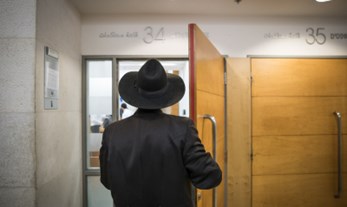
Israel Democracy Institute Scholars on the Proposal to Enable Religious Courts to Arbitrate on Civil Matters: ‘A Good and Balanced Proposal’
Ahead of today’s vote on a bill that would enable religious courts to conduct arbitration with the agreement of both parties, similar to the arbitration that takes place in other frameworks, a policy statement was sent to the Ministerial Committee on Legislation by Israel Democracy Institute’s Dr. Benny Porat.
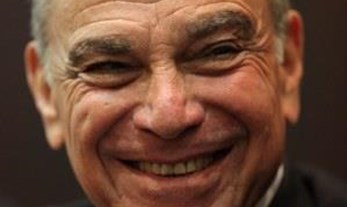
Professor Eytan Sheshinski joins the Israel Democracy Institute (IDI) as a Senior Researcher in the Center for Governance and the Economy
Top Israeli economist, Professor Eytan Sheshinski, has joined IDI as a senior researcher in the Center for Governance and the Economy, under the leadership of Dafna Aviram-Nitzan.

Start-up Nation Central, the Israel Democracy Institute and the Israel Innovation Authority Praise the Government’s Decision to Increase Governmental Interoperability as an Important Step for the Israeli Civil Service
The Israel Democracy Institute (IDI), the Israel Innovation Institute (III) and Start-up Nation Central (SNC) said the government’s recent decision to approve implementing new and innovative interoperability strategies is an important step that could lead to a major breakthrough.

Dr. Shuki Friedman: Religious Status Quo is Dead
“The time has come to re-raise the issue of the status quo and write new legislation that will be accepted by the majority of Israelis," said Friedman.
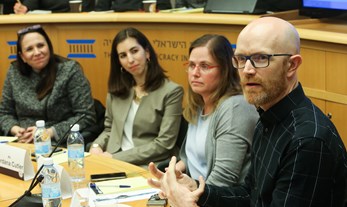
‘Zero Tolerance Approach to Terrorism’
IDI hosted an exclusive and high-level roundtable discussion on Facebook policies, Israel’s proposed Facebook Bill and freedom of expression. Simon Milner, Facebook policy director for the United Kingdom, Middle East and Africa, participated.

IDI President Responds to Advancement of V-15 Bill
Today, the V-15 bill advanced to the Knesset, with a vote expected as early as later this week.

Israel Democracy Institute Scholar Responds to High Court Deliberations on the “Agunah of Safed”
Dr. Shuki Friedman says the attempt to threaten a woman’s freedom after it was given to her three years ago by the local beit din in Safed is horrifying.
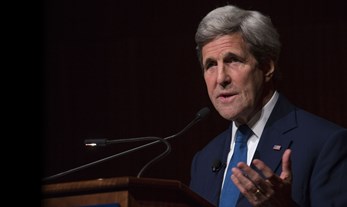
Arabs & Jews Agree: Trump will be Friendly toward Israel
Latest Peace Index: despite UN Security Council Resolution 2334, majority of Jewish Israelis support continued building in the settlements; Israelis consider trial of Elor Azaria unfair; in 2017, all are optimistic

IDI in the Media on Elor Azaria
IDI was quoted in nearly 500 articles connected to the Elor Azaria verdict, including interviews with Yohanan Plesner, Yedidia Stern, Mota Kremnitzer, Amichai Cohen, Tamar Hermann and Tehilla Shwartz Altshuler. We reached a potential 403 million individuals, through coverage in 28 countries and 42 states, plus Washington, D.C.

The Post that was Never Written
"The court must be allowed to pursue the legal process, without intimidation or attempts to undermine its independence."

"Unacceptable": IDI Scholars React to imminent Passage of Regulation Law
The Regulation Law, if passed by Israel's government will effectively nullify all previous rulings on the issue, substantially weakening Israel's Supreme Court; the government's decision would be in blatant contradiction of international law as well as Israel's commitments; will provide a boost for BDS activists around the world and confirm international community's belief that Israel is annexing the territories.

Elor Azaria: Statement by IDI President Plesner
Following the conviction of Elor Azaria on Wednesday, January 4, IDI President Yohahan Plesner called on leaders to spearhead a coordinated effort involving the education system, the IDF, and the political leadership.
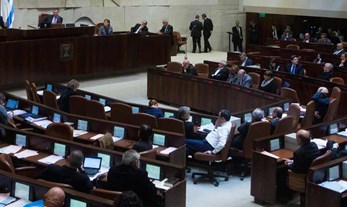
The Israel Democracy Institute Ahead of Deliberations on the V-15 Bill
Ahead of Wednesday’s (January 4) deliberations on the changes in the V-15 Bill, scholars from the Israel Democracy Institute (IDI) sent a letter to members of a joint committee of the Knesset’s House and Law Committees calling on them to amend the bill significantly.
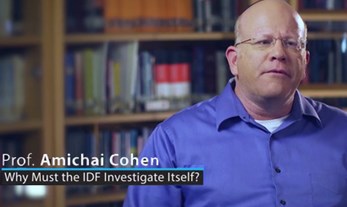
Why Must the IDF Investigate Itself?
Written By: Prof. Amichai Cohen
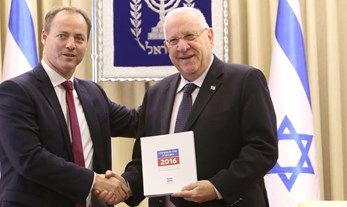
IDI Releases 2016 Israeli Democracy Index
Significant drop in public trust in government institutions and politicians; tension between Jews and Arabs is most serious point of friction; most Israelis are proud of being Israeli

Head of IDF’s Personnel Directorate says Freeze in Negotiations for Goldin, Shaul
Topolansky, Head of IDF’s Personnel Directorate, says after two years of negotiations with Hamas, IDF unable to redeem bodies of Goldin, Shaul

10 former government ministers from across the political spectrum urge Knesset to not pass bill: "Regulation Law will legalize land theft and violates the principles of Israeli and international law"
With the contentious Regulations Bill scheduled to be discussed at a special Knesset committee, the Israel Democracy Institute's 'Forum of Former Ministers' harshly criticized the proposal, stating that it "retroactively overturns a Supreme Court rulings, enables the stealing of land from its owners, violates Israeli law and accepted international legal norms and customs, and is an affront to the very concept of justice."

IDI Experts on Supreme Court Appointments Controversy
IDI weighed in today on the letter of Chief Justice of the Supreme Court Miriam Naor, who reacted negatively to the Justice Ministry's announcement that it intends to change the procedure by which new judges to Israel's Supreme Court are appointed.

Israelis Think Clinton Will Put Pressure on Them, Support Her Nonetheless
Latest Peace Index: A clear majority of Jewish Israelis believes Democratic presidential candidate will take election on Nov. 8

30 Years Since the Capture of Ron Arad
IDI and Tel Aviv University ask: What price should Israel pay for the release of Israelis held captive?


